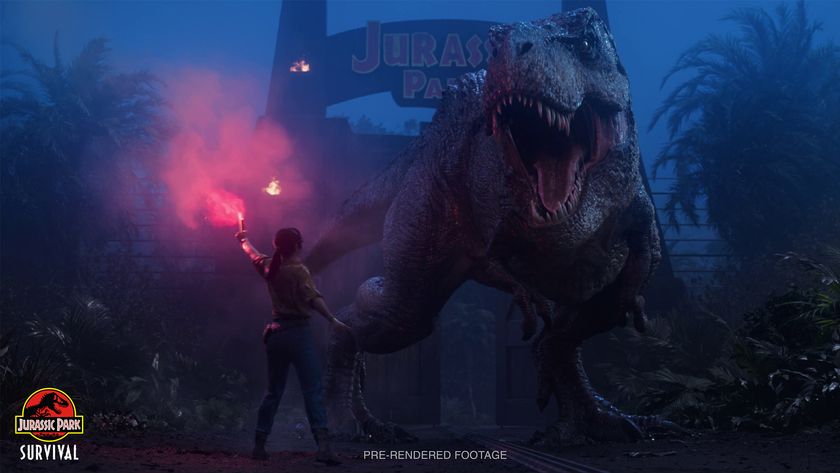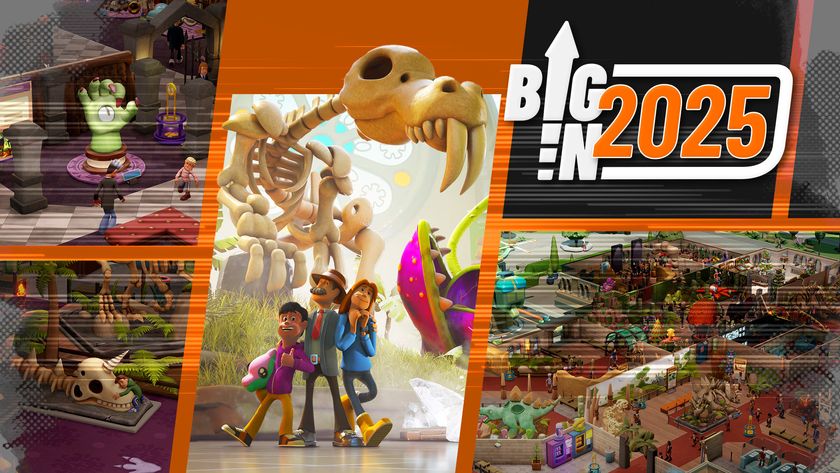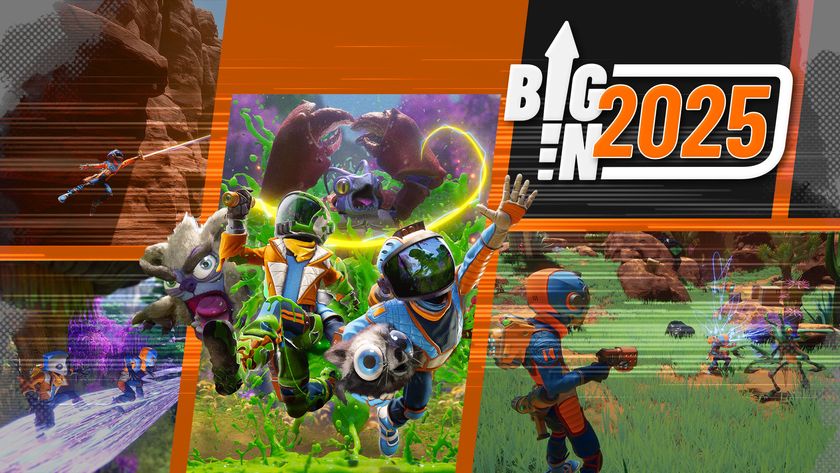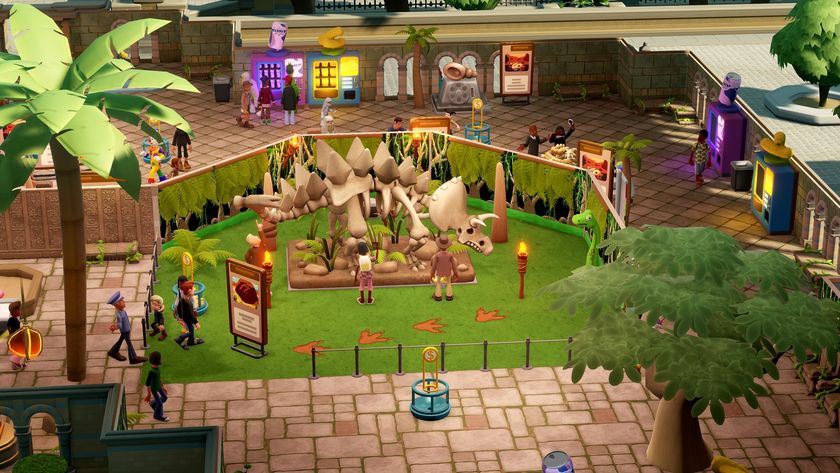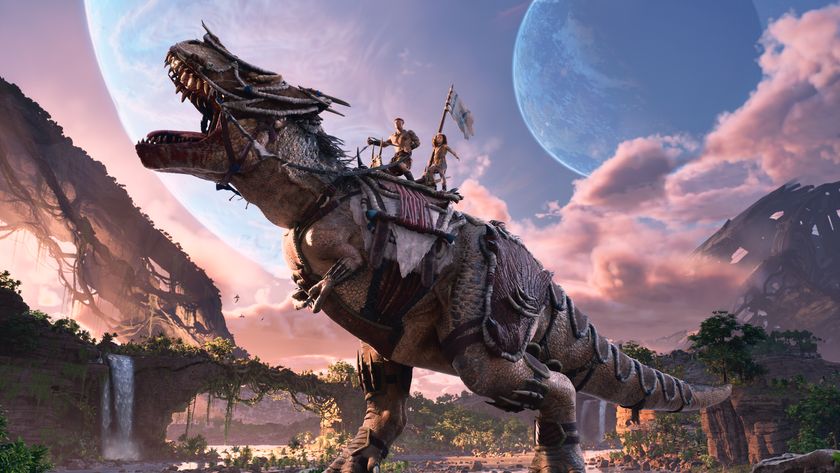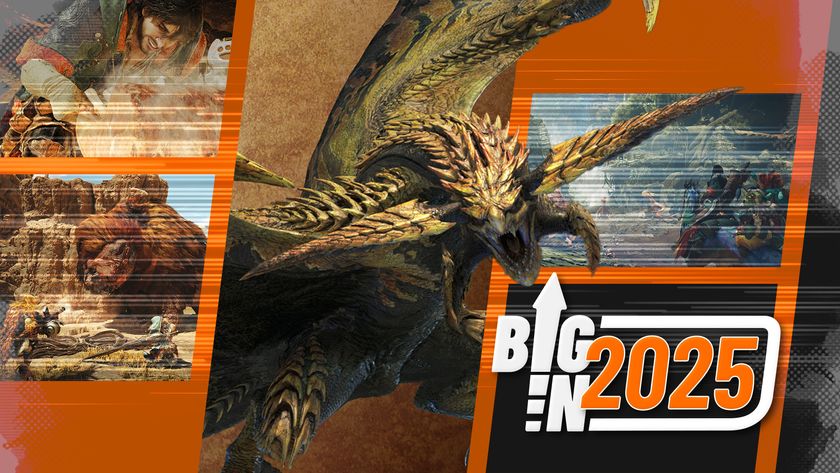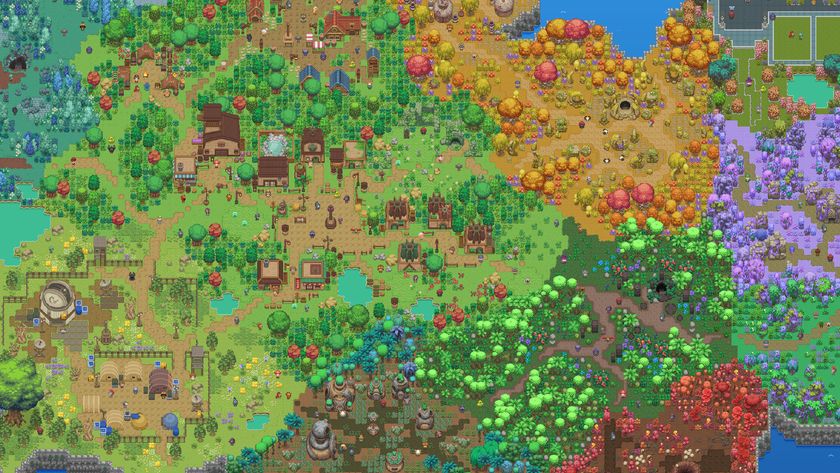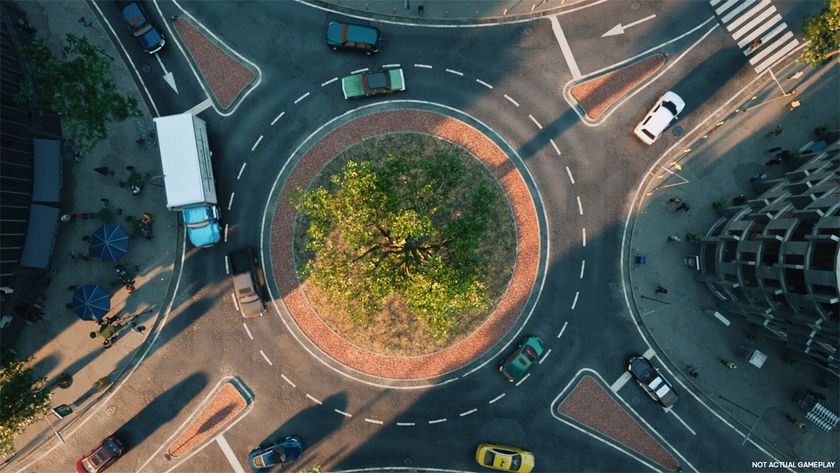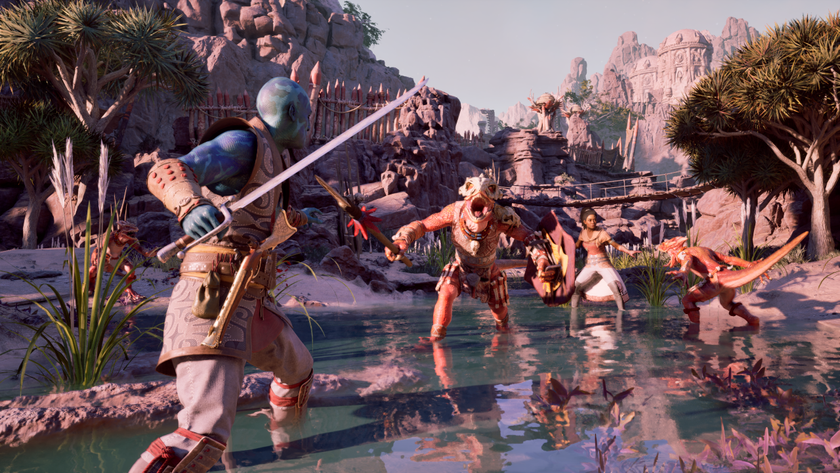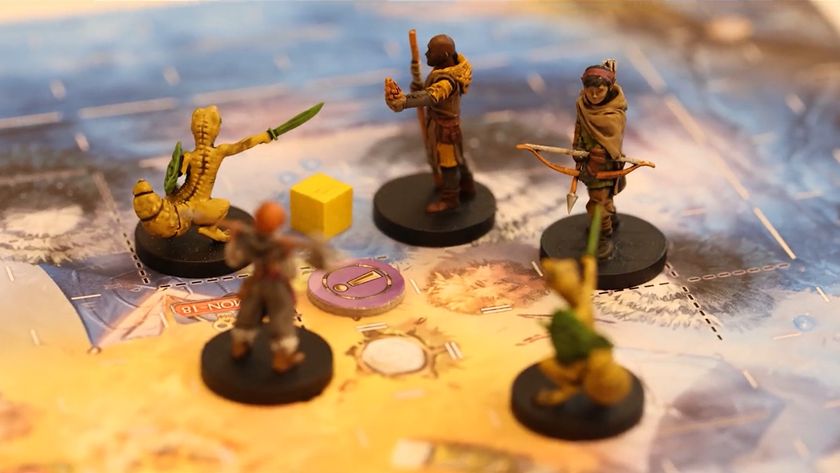Jurassic World Evolution 2 preview: Deeper management, better dinosaurs, and a whole load of customization options
Ranger changes, paleobotany, vets, and better facilities are all inbound with Jurassic World Evolution 2
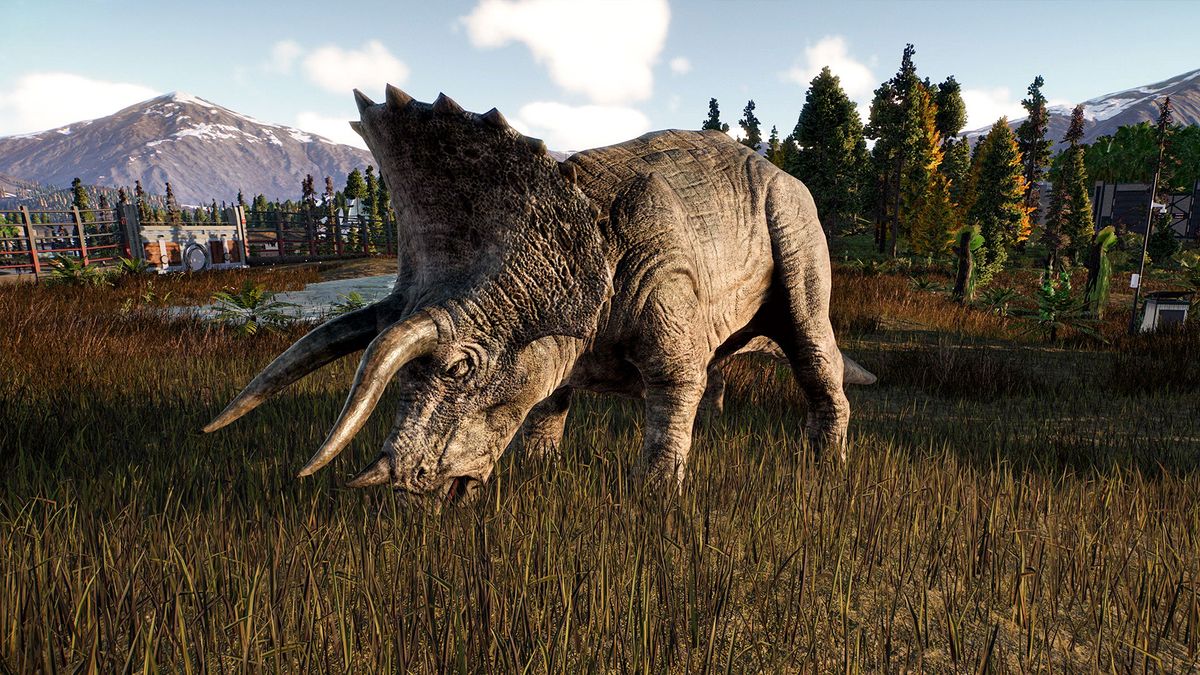
Call them what you want – flying reptiles, marine reptiles, dinosaurs – the prehistoric scaly beasts have always been the focus of Frontier Development's dinosaur theme park sim, as you'd hope for a game called Jurassic World Evolution. Okay, technically flying reptiles and marine reptiles aren't dinosaurs, but all breeds are being put under the spotlight in Jurassic World Evolution 2. The sequel to 2018's breakout success is putting a focus on enhancements across all areas of keeping your park residents safe, happy, and importantly, contained within their enclosures.
Speaking to game director, Rich Newbold, and executive producer, Adam Woods, they say the team has four core areas where the sequel will make significant improvements, ranging from enhanced creativity for park building, deeper management for both dinosaurs and guests, a rich narrative, and more dinosaurs (and reptiles) than ever – over 75 species in total. The full game will feature four unique game modes at launch, including a campaign that will offer an original story set after the events of Jurassic World: Fallen Kingdom, and the new Chaos Theory mode which will let you play through key events from the Jurassic Park and Jurassic World films for exciting 'What If' scenarios. There will also be the Challenge and Sandbox modes returning from the original game too.
Dino-stars

While an improved campaign is certainly a focus for Frontier, there will be consistent improvements applied across all four of those modes. Woods and Newbold walk me through a park built in Sandbox mode in the new Tiger Environment seen in the Jurassic World Evolution 2 trailers released so far, which comes complete with a dramatic mountainous backdrop and gloriously terrifying snowstorm events. The most impressive immediate impact is the changes being made to the dinosaurs themselves - aka the game's scaled stars.
The dinosaurs themselves are getting enhanced behaviors, allowing them to more closely mimic what we assume they did in the wild, including resting and preening, interacting with each other more, or having the option to hunt in a pack if that's in a species' nature. You'll be able to unlock more body color and pattern variations too, which will allow you to create more unique dinosaurs, or even make their markings tie in with the environment more.
Beyond this though, the way your dinosaurs interact with their enclosures is getting far more involved too. When you first release an incubated dinosaur from the Hammond Creation Lab (now hatched from a batch of eggs and able to be released in batches rather than singularly), they will start scoping out their environment, looking for the elements they know they need – such as food, water, forest areas, or a new feature called Ground Fibre. From these initial wanderings, your dinosaurs will then start digitally carving out a dynamic territory – an area of their enclosure that they'll see as their area, which will develop over time. Territories of different species within a single enclosure will overlap and complement each other, allowing you to blend together these creatures for a spectacular showcase for your guests.
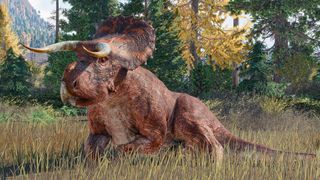
For herbivores, paleobotany is a driving force for these dynamic territories, and it's a feature that's being incorporated into the base game for Jurassic World Evolution 2, following its introduction in the Claire's Sanctuary DLC. Paleobotany is really just about the nutritional elements your dinosaur needs to stay healthy, and Jurassic World Evolution 2 removes the generic herbivore feeders, and instead encourages you to plant trees and shrubs that provide the correct food substances for each of your dinosaur species – whether it be Ground Fibre, Tall Fibre, Ground Nut, or something else entirely. The development team has even taken these new environment reactive terrain brushes straight from extinct plants from back in prehistoric times, reimaging them for how the terrain paint tools work in the game.
The result is that the enclosures look and feel a lot more organic, with players able to build up several smaller biomes within a single enclosure to satisfy those territorial needs. The original game could feel a little repetitive in the way you built up the forest and water areas, but now it seems like there's much more creativity in how you cater for creature happiness. That includes various scenery objects for your enclosures too, so it finally goes beyond just the terrain paints and feeders.
Sign up to the 12DOVE Newsletter
Weekly digests, tales from the communities you love, and more
Show me the money
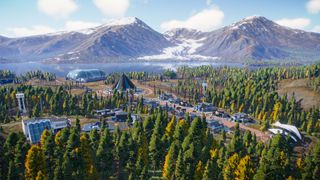
That customization extends to the way you improve the experience for your guests too, and not just in that you can place decorations in your park to improve how it looks. Along with requirements for essentials like food, water, restrooms, and gift shops, guests will now fall into one of four interest groups. There are those that just fall under the "standard" interests group, but there are also those looking for adventure, nature, and luxury. Different areas of your park can be tailored to satisfy those interests. For example, nature-focused guests will gravitate towards the herbivore enclosures, while those seeking adventure are going to make a beeline for your T-Rex. Now, you'll be able to choose and tailor your amenities to better complement the guests heading to different sections of your park.
Amenities in particular are a building type that can be customized both inside and out. An amenity can be configured to add interior modules, such as an aquarium, display cabinets, infotainment, skeleton displays, and more – all of which have values that align with these guest interests. Externally, the modules that you add won't, sadly, be reflected, but there are ways to change the appearance and theme of your buildings. You can change the roof decorations, signage, where the entrance is, add theme decoration to the ground area, or change the paintwork. It'll be much easier to make themed areas of your park that do feel unique, again moving away from the singular designed facilities of the original game.
New attraction buildings complement the more shell-like amenities though, and offer specific building types like a fully-fledged aquarium that should add more variation to your park. It'll be interesting to be able to spend just as much time making your guests happy as you will your dinosaurs. It was definitely something that felt a little more neglected in the original game, so it's pleasing to see that the park building experience as a whole is being taken into consideration. And of course, happy guests means happy pockets, which in turn means you'll have happier dinosaurs. It's a win, win.
Out of range
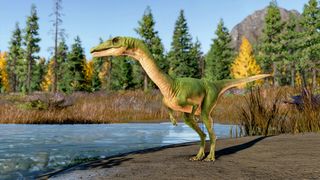
Management improvements don't stop there either, with Jurassic World Evolution 2 adding more tools and an additional ground team type. That'll mean you have to work a little harder to understand your residents. For the existing rangers, you can now place Ranger Posts within the enclosures and assign a ranger team to that post. This will allow you to build up a ranger patrol route, and rangers passing through will scan the dinosaurs in that area. Rather than being instantly accessible, the information on the dinos now has a fog of war effect on it, and your rangers will need to go out on a status check run to check why a dino might be unhappy. But, to actually heal your dinos or cure them of illness, you'll need to send in your new mobile vet units from the Paleo Medical Facility, which is a fresh addition for this sequel. Vets can be sent in after a problem has been flagged by the rangers, and either help out in the field, or bring the dinosaurs back to the Paleo Medical Facility for treatment.
Although you'll need to enlist the help of your rangers, what I particularly love about what I've seen so far of Jurassic World Evolution 2 is the life improvements. Information is clustered together in a much better way, meaning you're not clicking between menus to paint a terrain with more trees, and then back to your dinosaur to see if you've added enough to make them happy. It's all in one place now, so adding trees increases your dino's contentment in a single menu – they're small tweaks in this bigger whole, but necessary ones. So far, this is everything the original strived to be, but with just more of everything. More dinosaurs and reptiles, more management options with deeper tools, enhanced customization, and, most importantly, more opportunities to connect with the dinosaurs themselves. If you fell in love with the first game, we're all no doubt about to lose many more hours to this dino park sim sequel when it launches sometime this year.
Jurassic World Evolution 2 is launching on PC, Xbox One, Xbox Series X, PS5, and PS4. Check out more of the new games arriving in 2021 and beyond.

Sam Loveridge is the Brand Director and former Global Editor-in-Chief of GamesRadar. She joined the team in August 2017. Sam came to GamesRadar after working at TrustedReviews, Digital Spy, and Fandom, following the completion of an MA in Journalism. In her time, she's also had appearances on The Guardian, BBC, and more. Her experience has seen her cover console and PC games, along with gaming hardware, for a decade, and for GamesRadar, she's in charge of the site's overall direction, managing the team, and making sure it's the best it can be. Her gaming passions lie with weird simulation games, big open-world RPGs, and beautifully crafted indies. She plays across all platforms, and specializes in titles like Pokemon, Assassin's Creed, The Sims, and more. Basically, she loves all games that aren't sports or fighting titles! In her spare time, Sam likes to live like Stardew Valley by cooking and baking, growing vegetables, and enjoying life in the countryside.
